
Featured Videos |view more
 Video
Video
Rare and Extensive Brain Infection Prompts Massive Collaboration to Save Teenager’s Life
Pediatric neurosurgeon Ramin Eskandari, M.D., discusses an extremely rare and extensive brain infection in a teenage patient and shares the lessons learned by medical and surgical teams working to save the patient’s life and brain function.
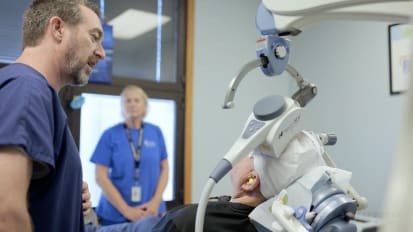 Video
Video
Transcranial Magnetic Stimulation for Major Depressive Disorder
Medication isn’t always successful for people with major depressive disorder, but TMS can help. Baron Short, M.D., MSCR, is the medical director for MUSC Health’s Brain Stimulation Service, and he says patients report more energy and an ...
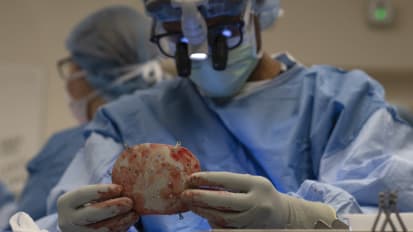 Video
Video
Precision Cranial Reconstruction Using Custom 3D-Printed Skull Prosthesis
MUSC neurosurgeon Nathan Rowland, M.D., Ph.D., shares technical details and sample footage of a unique cranial reconstruction case.
 Video
Video
Treating Trigeminal Neuralgia with Microvascular Decompression
Sunil Patel, M.D., the chair of neurosurgery at MUSC, discusses trigeminal neuralgia, a rare condition that causes intense pain in the face when no painful stimuli are present, and its surgical treatment.
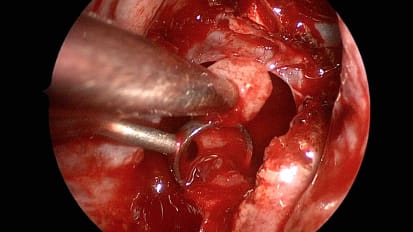 Video
Video
Endoscopic Endonasal Resection of Pituitary Tumors
Alexander Vandergrift, M.D., a neurosurgeon at MUSC, describes removing a nonfunctioning pituitary tumor from a patient through endonasal resection using an endoscope.
 Video
Video
Deep Brain Stimulation Using a Frameless Platform
Nathan C. Rowland, M.D., Ph.D., a neurosurgeon and assistant professor at MUSC, utilizes a novel, customized frameless platform to perform deep brain stimulation on a patient with essential tremor.
Featured Articles and Documents |view more
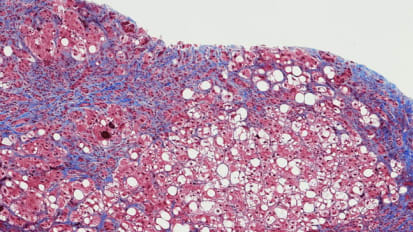 News
News
Researchers at MUSC study the extracellular vesicles of fibrosis & find potential avenue for treatment therapeutic
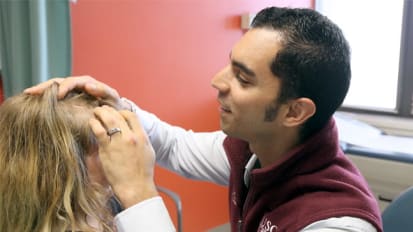 News
News
Easy and sustainable action leaves families less fearful, more empowered
 News
News
Auricular VNS sends electrical impulses to the brain through the ear to accelerate effects of motor rehabilitation
 News
News
MUSC and technology company blinkcns blend university and startup advantages to accelerate research
 News
News
More firefighters die by suicide than in the line of duty according to a study from the Ruderman Family Foundation.
 News
News
Monitoring patients’ health after an organ transplant is vital, but the process can be challenging, laborious, and slow.
MUSC Health Neurosciences ranks first in the Southeast and second in the country in National Institutes of Health neuroscience research funding. It places researchers and clinicians at each other’s side in an effort to realize the clinical promise of cutting-edge research. As a consistent leader in neuroscience advances, MUSC Health is: